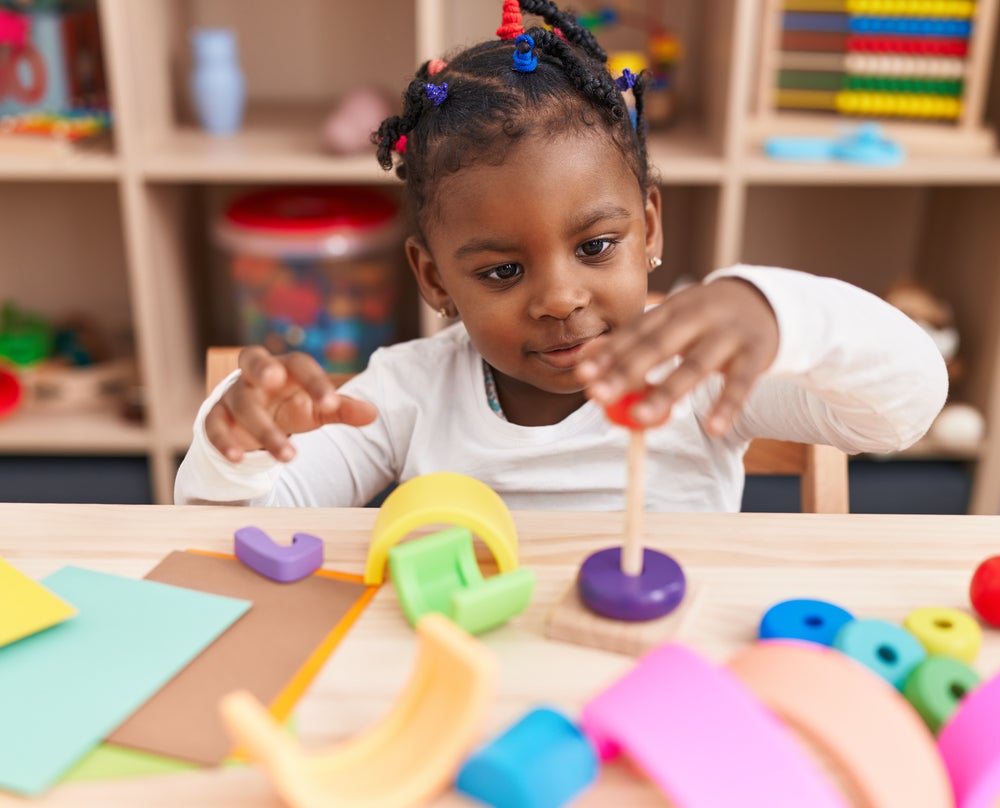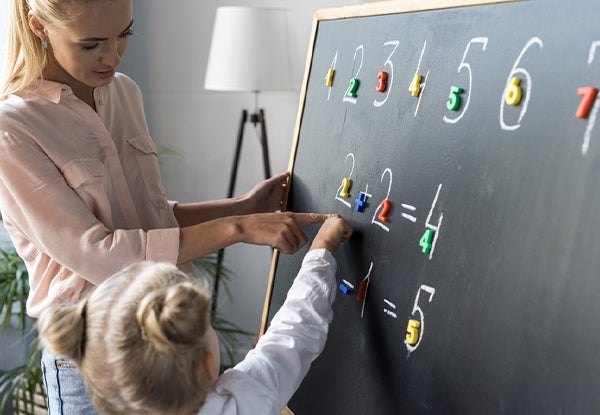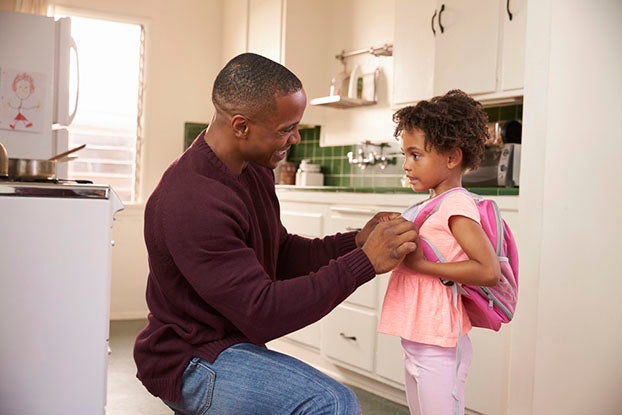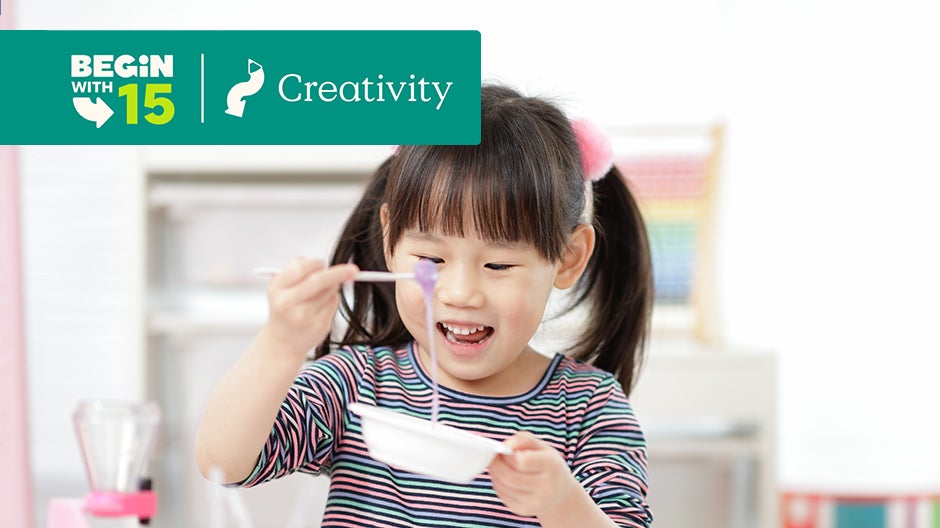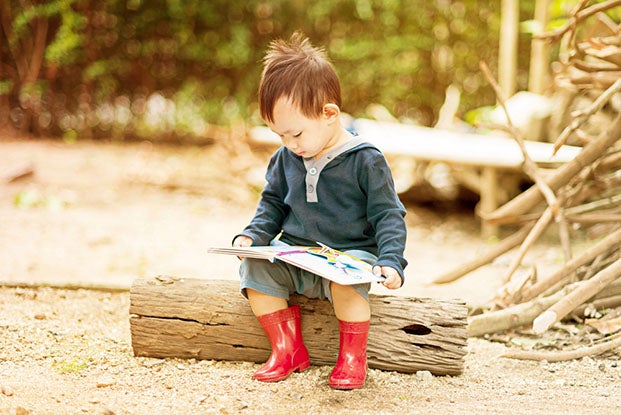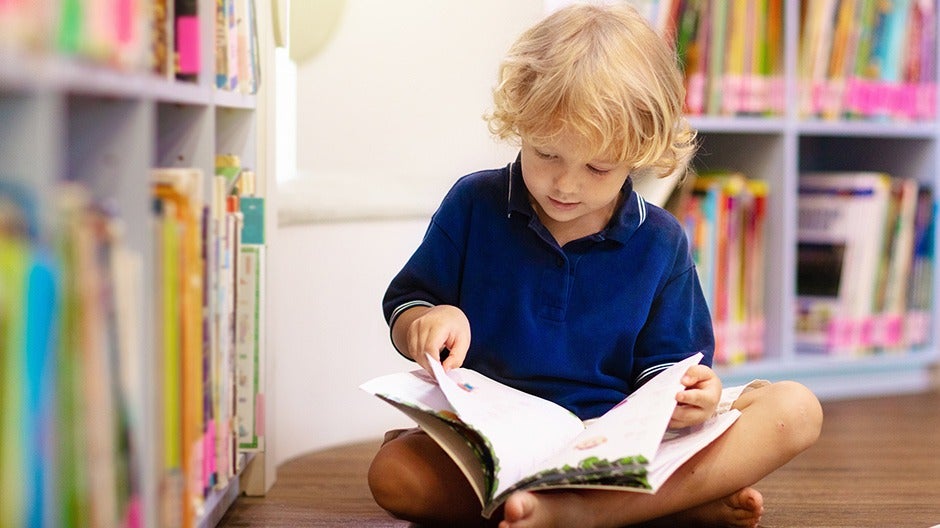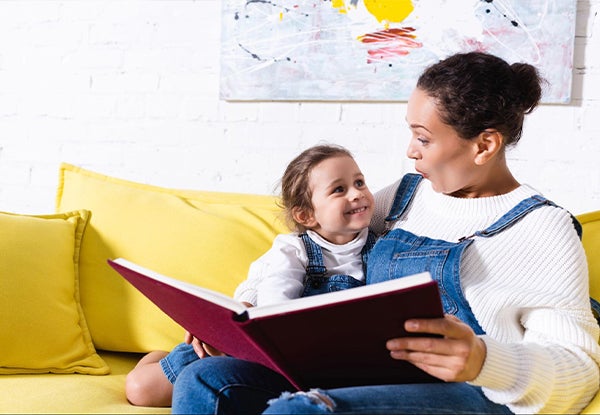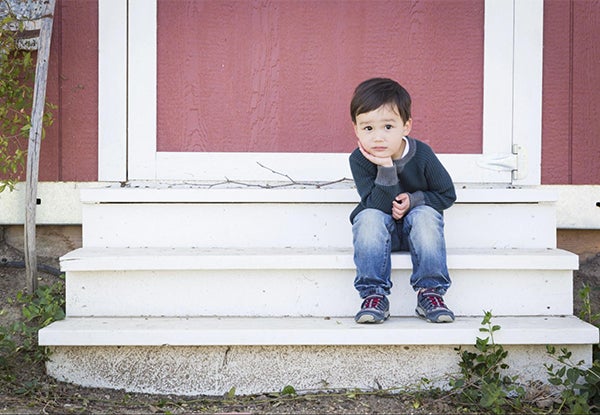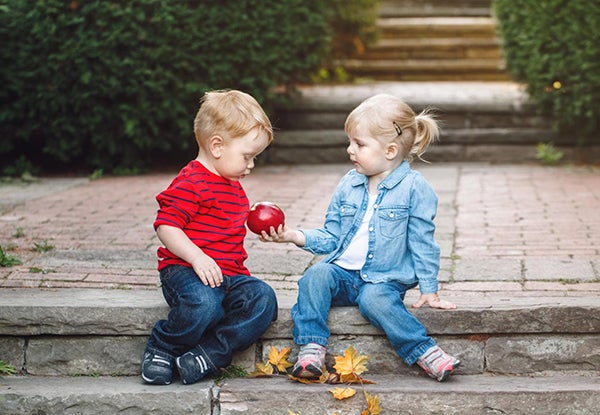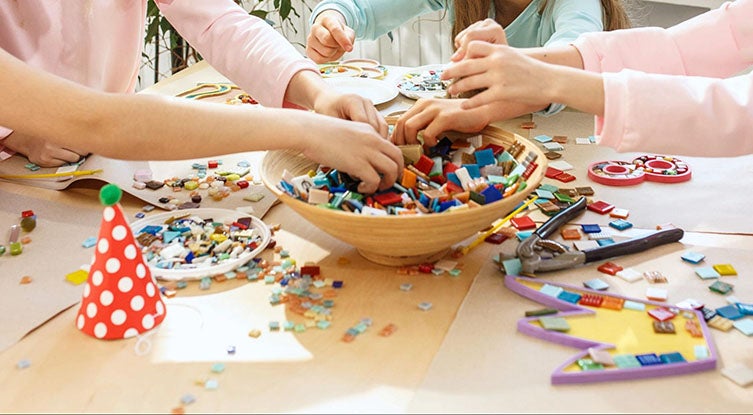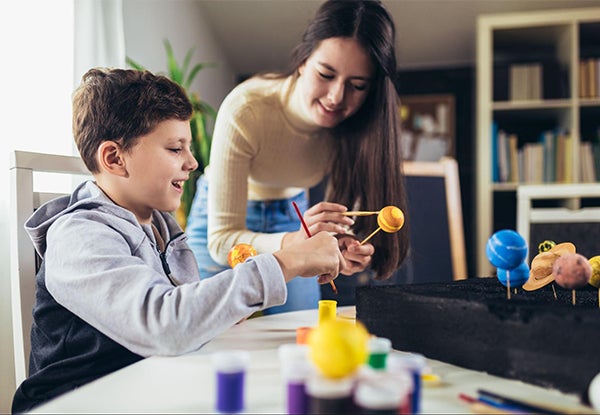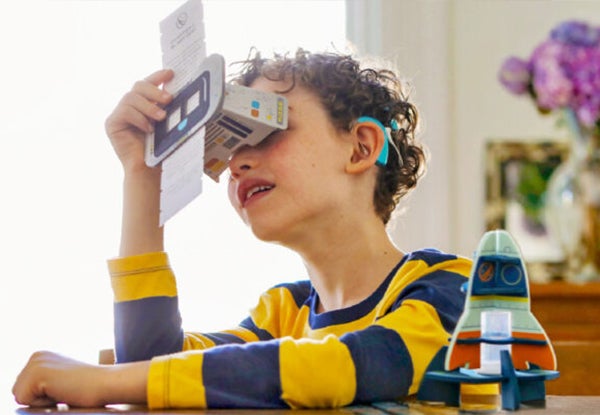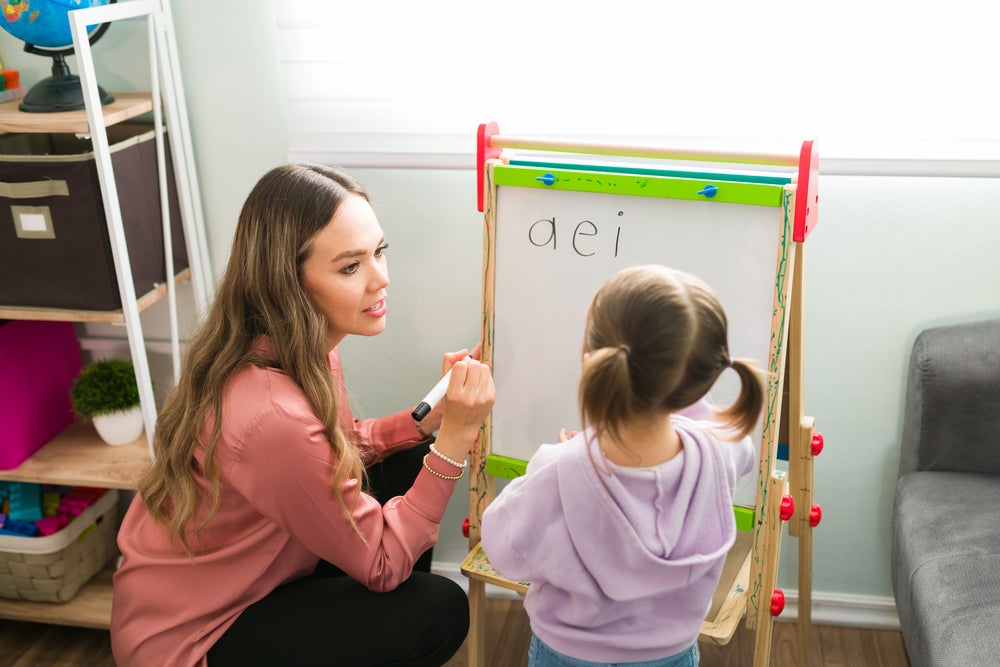Now that your little one is growing up, you might be thinking about enrolling them in preschool. But before making that exciting decision, you want to make sure it’s the right time for them. That’s where this preschool readiness checklist comes in.
While reviewing the list, remember that every child develops at their own pace. It’s OK if your child hasn’t mastered everything yet. Use this checklist as a guide to see where they are now and where they may need extra practice and support.
Table Of Contents
- Preschool Readiness Checklist: Pre-Academic Skills
- Preschool Readiness Checklist: Other Areas
- How To Prepare Your Toddler For Preschool
Preschool Readiness Checklist: Pre-Academic Skills
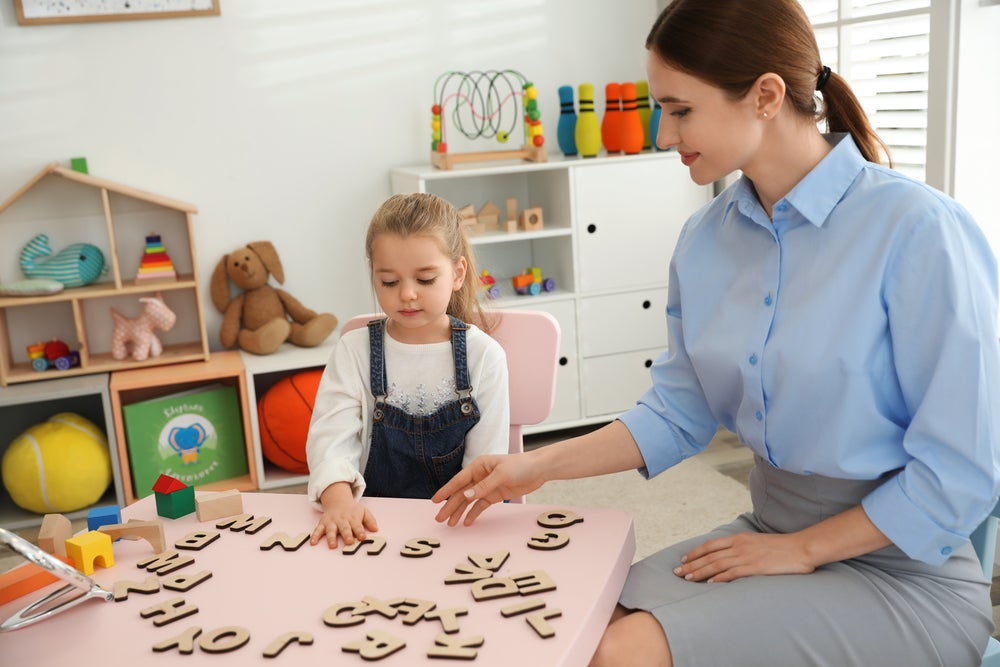
The goal of preschool is to introduce children to essential skills that will set them up for future academic success. You can see how your little one is doing in the pre-academic areas listed below.
These tie into the 5 C’s of the Begin Approach to helping kids thrive in school and life.
Critical Thinking
Being able to think clearly and rationally is important for understanding new concepts and making connections between ideas.
While preschoolers are still developing their critical thinking skills, here are some signs that they’re on a comfortable path:
- Can follow simple, one-step instructions
- Groups like objects together
- Can retell two or three events in a story they’ve recently heard
Problem-Solving
Children face many obstacles throughout their academic and personal lives. Teaching them creative problem-solving skills early on can help them navigate these challenges with confidence.
Strong problem solvers can:
- List a couple of places to look for a lost toy
- Answer open-ended questions, such as, “How could we clean this spilled milk?”
- Assemble a puzzle with a handful of large, chunky pieces
- Use trial and error when faced with a challenge (doesn’t give up when the first option doesn’t work)
Communication
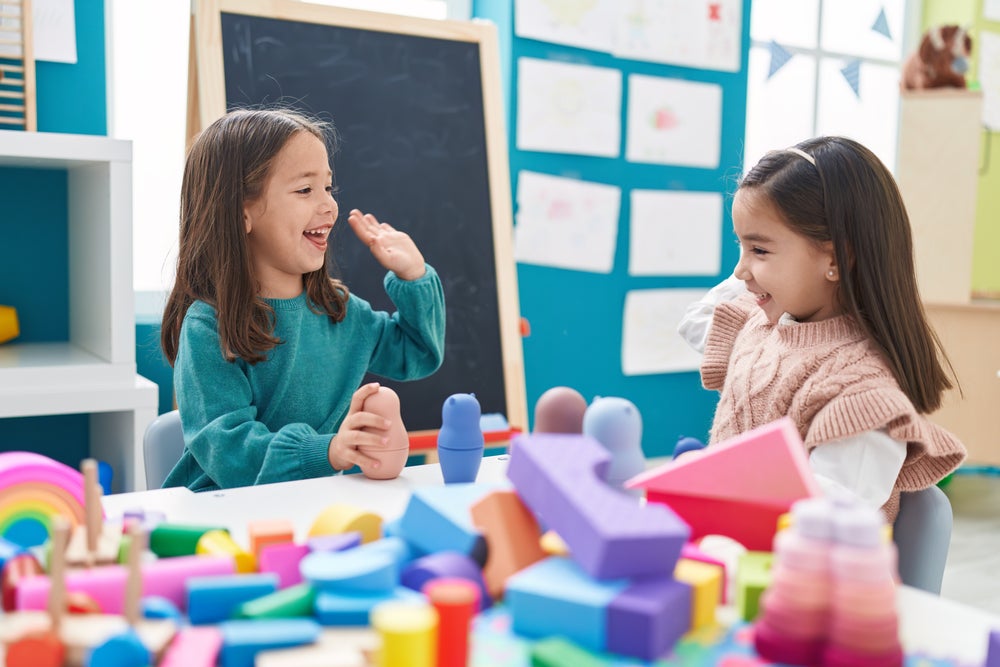
Developing strong communication skills is crucial for preschoolers as they begin forming relationships with others outside their immediate family.
Children with solid communication skills often can:
- Use words to express needs and wants
- Engage in simple back-and-forth conversations, such as saying “Hi” when greeted
- Ask and answer “wh” questions
- Use nonverbal communication methods, such as facial expressions and gestures to convey meaning
Early Literacy
While most preschoolers aren’t yet ready to read, literacy activities at this age help them build a solid foundation for future success.
Early literacy core skills can include:
- Singing the alphabet song
- Recognizing a few letters by sight
- Pretending to read books by retelling a familiar story
- Recognizing logos and understands that they have meaning (such as realizing that the iconic golden arches mean McDonald’s)
- Knowing what their name is and can name other members of their family
- Understanding that text is read from left to right, top to bottom
Early Math
At this age, math comprehension is more about recognizing patterns and understanding basic concepts than solving problems. Rest assured that these early math skills will give your child the background knowledge they need to tackle more challenging math later on.
When ready for preschool, your little one could begin to:
- Count to 10
- Name several basic 2D shapes
- Continue a simple AB pattern (like red, blue, red, blue)
- Count physical objects with 1-to-1 correspondence
- Recognize a few written numbers
Preschool Readiness Checklist: Other Areas
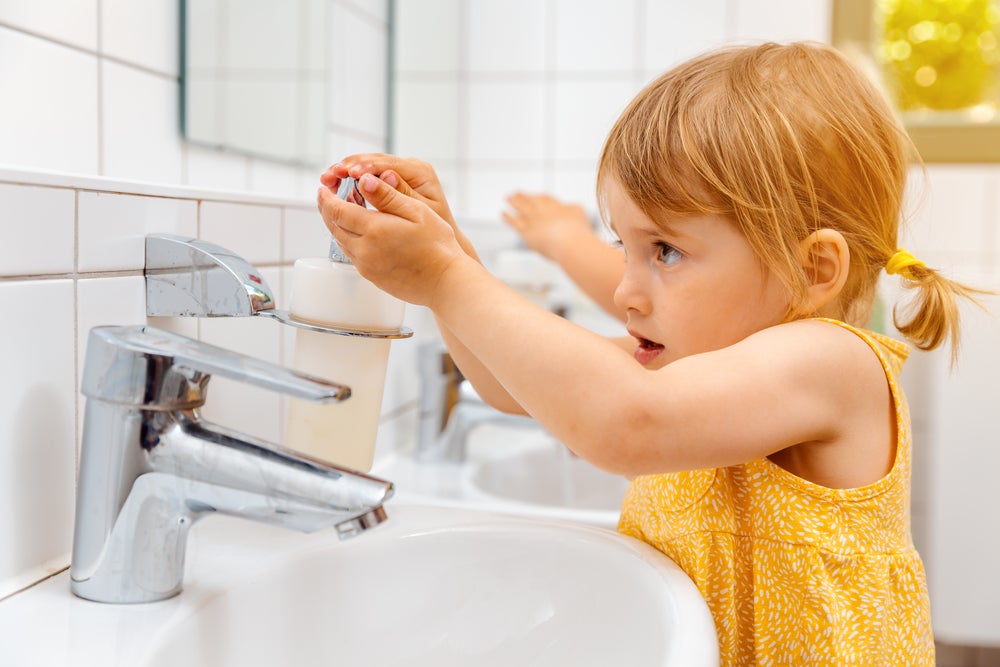
Preschool isn’t just about academics. Your child’s social, emotional, and physical development are equally important.
Let’s look at a preschool readiness checklist for these other areas.
Self-Care
Self-care refers to the ability to take care of oneself and participate in daily tasks independently.
Here are some self-care skills that may indicate your child is ready for preschool:
- Is potty trained
- Helps pick out clothes and attempts to put them on
- Puts shoes on feet, even if they can’t tie or fasten them
- Washes and dries hands independently
- Drinks from an open cup
- Feeds self with spoon and fork
- Picks up toys
Fine And Gross Motor Skills
Children with well-developed fine and gross motor skills have control over their bodies and can perform movements with accuracy and coordination.
Here are some things your child might be asked to do in preschool:
Fine Motor Skills
- Hold a pencil with thumb and fingers
- Zip coats and pants independently
- Use scissors to snip paper
- Stack multiple blocks into a tower
Gross Motor Skills
- Pedal a tricycle
- Walk up and down stairs while alternating the lead foot
- Jump several times in a row
- Maintain balance while bending down to pick up a toy
- Throw a ball toward a target
- Climb into and out of furniture independently
Social And Emotional Skills
Preschool is often the first time children are away from their parents for an extended period. It may also be their first time interacting with peers in a structured setting.
The skills below help indicate that your child is developing the character they need to handle the emotions and social interactions that come with preschool.
- Engages in make believe play
- Doesn’t panic when away from you for a few hours
- Recognizes that other people also have emotions
- Shares toys and waits patiently for their turn
- Understands personal space and boundaries
- Uses words to communicate feelings and emotions
How To Prepare Your Child For Preschool
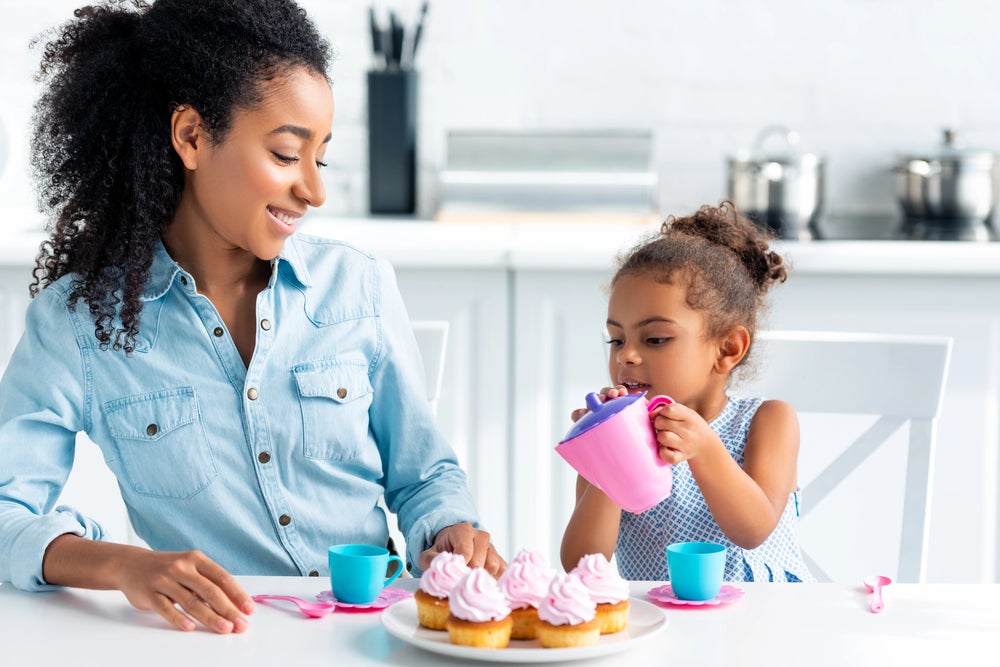
Now that you know what skills your child will need in preschool, let’s look at some simple ways to prepare them for this new experience.
1) Read Aloud
Sharing books with your child can help develop their language skills, attention span, and imagination. Read different types of books together, from picture books to short stories, and encourage your child to ask questions and express their thoughts about the story.
Invite them to participate in imaginary play based on the book you just read. See if they can brainstorm simple costume pieces and props to act out what they think happened next.
As their curiosity about the topic kicks in, they may dive even deeper.
2) Implement A Simple Routine
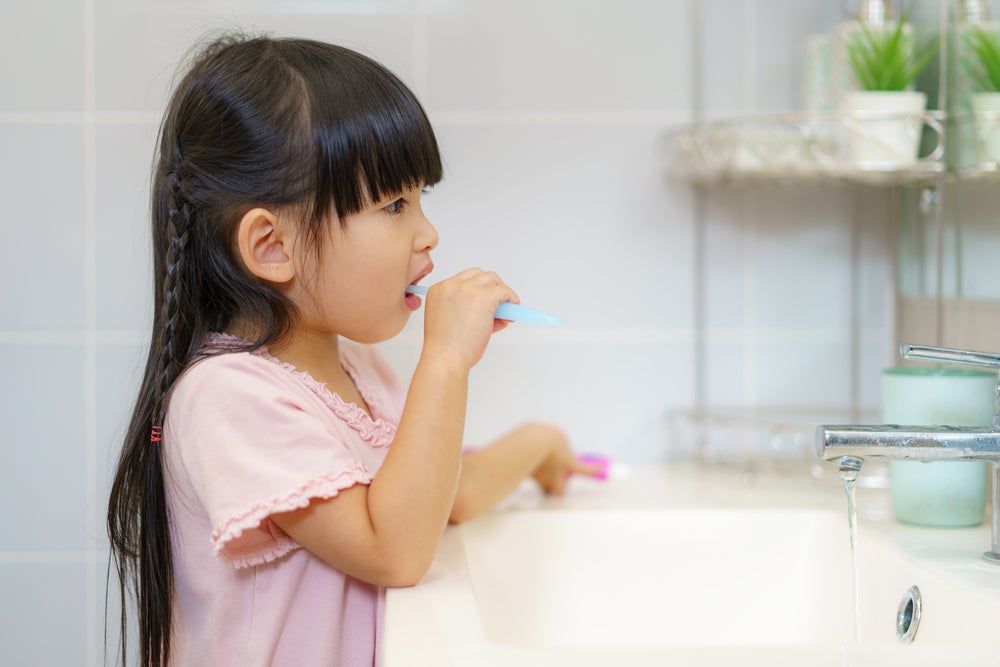
Preschools often follow a more predictable routine compared to a child’s daily life at home. This structure helps children feel more secure and comfortable in their environment.
Consider implementing a similar routine at home to help them get used to this style of time management. Ask them to draw pictures representing regular daily tasks, such as:
- Getting dressed
- Making their bed
- Eating breakfast
- Brushing their teeth
- Listening to story time
- Doing crafts together
- Playing outside
- Eating a snack
- Taking a nap
Display the pictures in a visible spot, and work together to arrange them in order each morning so your child knows what to expect.
3) Foster Independence
With a classroom full of students, your child’s teacher simply won’t be able to help with every task. The more your child can do on their own, the more comfortable they’ll feel in preschool.
Give them time to try before you rush in to help. Encourage them to put on their shoes and coat, pour their own drink, and use the bathroom independently.
As your child succeeds at each small task, they’ll gain confidence in their abilities.
4) Practice Skills Through Play
It’s no secret that children learn through play. Take advantage of this by providing opportunities for your little one to practice specific skills in a fun way.
Here are some ideas:
- Invest in educational apps, like HOMER. As your child plays, they will gain valuable skills.
- Play preschool-friendly board games together.
- Meet friends at a park where your little ones can play together and practice moving their bodies.
- Create puppets and take turns putting on shows.
- Hide ABC cards around the room and challenge your child to find them.
- Explore each month’s new theme with a hands-on activity kit from Learn With Sesame Street.
5) Try Role-Playing
Role-playing is a great way to help your child understand and navigate social situations in preschool. As they participate, they practice their communication skills and develop the ability to put themselves in someone else’s shoes, which can help them build empathy.
Here are some simple scenarios to role-play with your child:
- Ordering food at a pretend restaurant
- Playing doctor, one person acting as the patient and the other as the doctor
- Pretending to be a firefighter or police officer
- Acting out a familiar scene from a book or movie
- Overcoming simple friendship problems, such as someone who won’t share
As you play, encourage your child to use their words to express each character’s feelings. Let them brainstorm different solutions to the problems you face.
If they seem stuck, offer suggestions and talk through the scenario together.
Preschool, Here We Come!
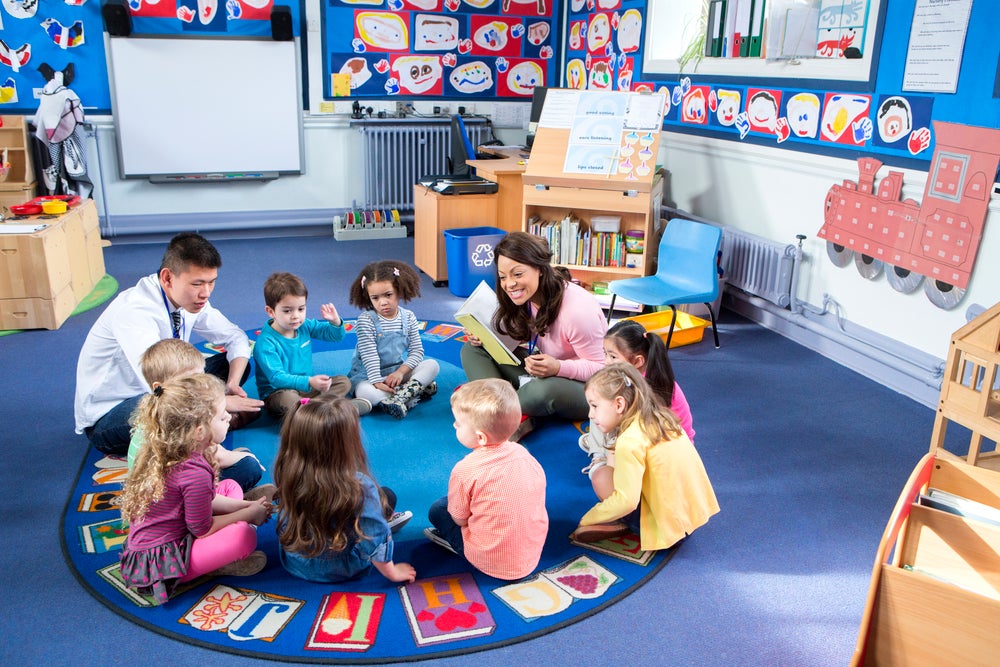
Your child’s first day of preschool will be here before you know it. This preschool readiness checklist can help them prepare for the big day!
As you work with your child, remember that the Begin team is here to offer encouragement and support. Our learning products and parent resources are designed to help your little one thrive in preschool and beyond.
We’re excited to be a part of your family’s journey toward lifelong learning!
